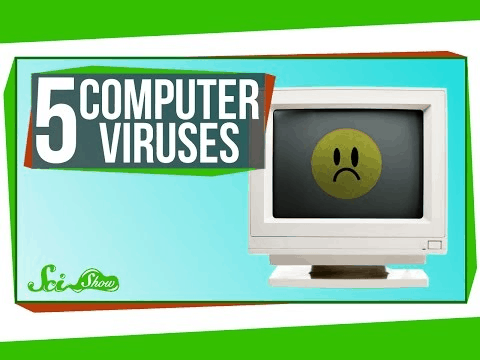Malware and security threats is a perennial problem since the dawn of the digital age. The ingenuity of cyber criminals through the years to hack systems, exploit vulnerabilities and inflict malicious activity to stay one step ahead of these malicious threats.
Here are the most dangerous malware threats you need to know about to protect your PC and devices from infection:
Trojan Horse
A Trojan horse or Trojan is a malware that disguises itself as a legitimate software so hackers can gain access to users’ systems. Users are typically misled by some form of social engineering—manipulating people to give up their private information—so hackers can load and execute Trojans on the victim’s systems. Once Trojans are activated, it can enable cyber-criminals to spy on their prey, steal sensitive data, and gain backdoor access to unsuspecting victims’ networks and other systems. Unlike computer viruses and worms, Trojans cannot self-replicate, but attackers can use them to delete, block, modify, and copy user’s data, and also disrupt the system and network performance.
Cryptomining
Cryptomining, Cryptojacking, or Crypto, is the mining of cryptocurrency through the unauthorized use of someone else’s computer. Hackers lure the victim into clicking on a malicious email link that loads cryptomining code on the computer. Hackers can also infect a website or online ad with JavaScript code that auto-executes once loaded in the user’s browser. In both cases, the malicious code works in the background as unsuspecting victims use their computers normally. At the onset, the user may notice slowdowns in their computer’s performance. “Cryptomining is in its infancy. There’s much room for growth and evolution,” says Marc Laliberte, threat analyst at WatchGuard Technologies.
However, Positive Technology’s Cybersecurity Threatscape Q1 2019 report shows that cryptomining now accounts for only 7% of all attacks, down from 23% in early 2018 because cybercriminals have shifted more to ransomware, which is more profitable.
WinRAR Bug is New and Dangerous Malware
WinRAR is a popular program that extracts compressed files. Attackers found a vulnerability, where they engineer compressed files to extract malware directly to the Windows operating system without warning. A host of malware is taking advantage of this newly-revealed vulnerability. If you own WinRAR, patch it right away.
Fake Asus Updates Weaponized with Viruses
Computer manufacturer Asus recently revealed that its update software was breached at the source. One of the latest critical security updates for the machines promoted by Asus itself secretly had malware that was distributed to over 1 million people but appeared to have been hunting for just 600 specific targets.
IoT Attacks Hit 32.7 Million
IoT devices are becoming more and more popular, but it turns out that they are easy to abuse because of their control system. Most of these devices have no built-in firewalls, and default usernames and passwords on some are unchangeable, which resulted in an increase of 217.5% in attacks since 2017. These attacks are designed to create hordes of remote-controlled ‘bots’ that implement DDoS attacks to bring down portions of the internet. Before getting an IoT device for yourself, make sure it’s secure.
New Android Malware Can Drain Your Bank Account
Gustuff is a recently-discovered malware that can automatically break into apps for banking and cryptocurrency installed on unsuspecting victims’ phones to conduct their cyber thievery by stealing funds. It spreads by texting the contacts in a victim’s phone, with the intent of luring other victims to click links with unusual text messages!
NVIDIA Patches its Graphics Management Software
NVIDIA is a graphics card popular among gamers and digital content creators.
Its management software was recently hacked with a bug that allowed cybercriminals to execute codes within a victim’s computer randomly. While no exploit has yet appeared for this vulnerability, NVIDIA users need to patch their graphics card drivers to be on the safe side.
SMEs Are Easy Targets for Ransomware
Security experts are seeing 70% of ransomware attacks targeting SMEs or Small to Medium Enterprises because these businesses do not have enough resources or insight to secure their computers. SMEs are also more likely to pay for the ransom. It’s time for SME owners to tighten their security measures to avoid attacks that can compromise their business and their clients. Learn how to protect your business online from hackers and cyberattacks.
Facebook Stored Passwords in Plain Text
Due to an internal error, Facebook stored hundreds of millions of passwords – for both Facebook and Instagram users – in plain text. If an attacker had breached that part of Facebook, stealing accounts would have been so easy to do. If your password was stored in this way, change your password right away.
New Vulnerability Exposed in TP-Link Smart Home Routers
If you happen to own a TP-Link SR20 Router, you might consider replacing it. That’s because developers at Google recently announced that this brand of router is affected by a vulnerability that lets attackers take control of the router if they join the same network. Google revealed this vulnerability to the public because they disclosed the issue to the manufacturer privately, with no response, and no apparent plans to issue a fix.
There are more malware attacks the digital world battles with every day. See more of these attacks in the videos below by SciShow.

Video Source: SciShow © 2016
Conclusion: Do not Give Cyberattackers the Upper Hand
Cyberattackers take advantage of even the most minuscule of weaknesses in cybersecurity. Our security should be our responsibility. Keeping you and your system as secure as can be is a necessity in these times when attacks are at their peak in complexity and deceptiveness. Don’t give these cybercriminals the upper hand by not being fully aware and fully armed. Know how antivirus software works, and why you need to have one. Get the latest security software, always keep it up-to-date, and be cautious of how you use the internet so you can stay on the winning side of the ring. And an excellently secured system is what will keep you at the safe side, the winning side, of this cybersecurity saga.











Leave a Reply